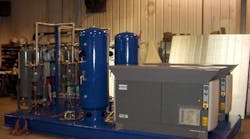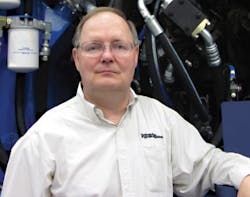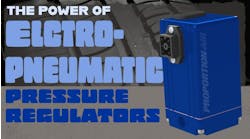One of the things that attracts people to hydraulics is its simplicity. I learned this as a teenager while working on cars with my older brother. It was easy to comprehend how pushing on a car’s brake pedal pushed a piston that drove hydraulic fluid out of the master cylinder to the car’s wheel cylinders. My brother also taught me that I had to bleed the brakes after repairing or replacing a hydraulic component. Each wheel cylinder had a bleed valve, and depressing the brake pedal with the bleed valve open purged air from the hydraulic system. I always dreaded this two-person task, but it was necessary to prevent spongy operation.
This simplicity of hydraulics can be a problem because people with no professional training can—and often do—work on hydraulic systems. They may develop a false sense of confidence after replacing a valve, pump, or other component without incident. They might even successfully replace components in a system containing an accumulator or counterbalance valve and suffer no ramifications—even though these components can trap high-pressure fluid within a hydraulic circuit. This can lead to confidence that they have a deep understanding of hydraulics but are unaware of their ignorance.
If the trapped fluid is unintentionally released, the consequences can range from being startled by an actuator unexpectedly shifting, to a huge oily mess to clean up, or personal injury or death. Of course, there is no way of guaranteeing that mistakes won’t be made, but professional training from certified and accredited instructors will certainly improve the likelihood of successful and safe maintenance practices.
If you’re like most people in the fluid power industry, you gained the majority of your knowledge on the job, rather than from formal education. Either way, if you’d like to ensure you have a thorough knowledge of fluid power technology, start with the International Fluid Power Society, which has a page listing training courses for fluid power.


